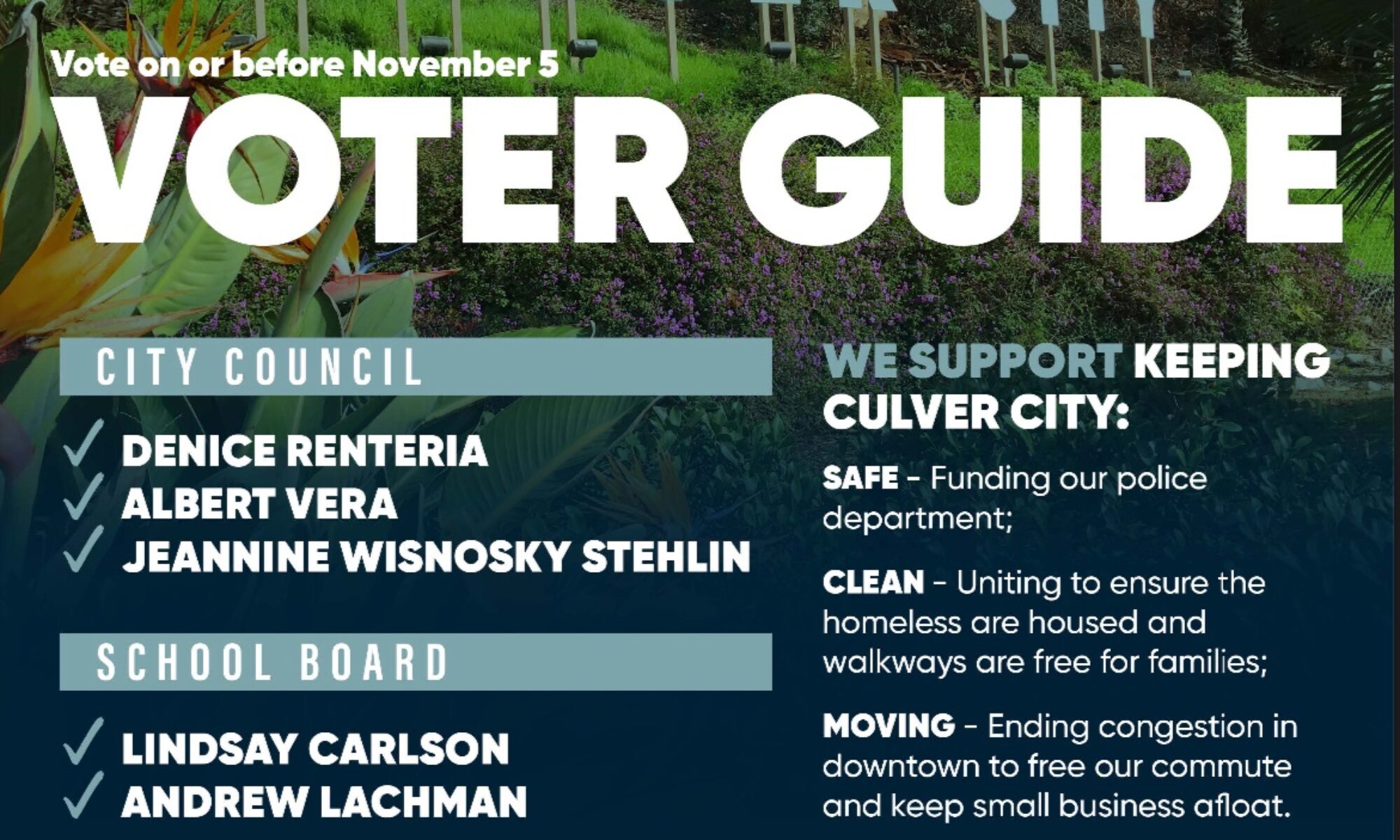Protect Culver City is an association of Culver City residents and business owners who are concerned with the current direction of our city council. Our beginnings can be traced back to the night of June 24/25th, 2019, after council decided 4-1 to phase in rent control in Culver City.
It’s the manner in which they decided that should concern everyone. None of the Council members ran for office on this agenda. Unfortunately, this lack of responsiveness and transparency is something we’ve grown to expect from this council. This is why we realized early on, rent control could not be our only or even our primary issue. Not if we are to protect our city and keep everything we loved about Culver City when we moved in.
We anticipated them acting similarly over other issues. Over the past three years we have gotten involved in the following issues:
- The spike in vagrancy and associated crimes in our city
- Protecting the good name of our police department and keeping them properly funded
- Ensuring a proper debate on rent control – which nobody ran on
- Reckless and unpublicized upzoning plans
- Budget issues, reckless spending, coupled with “emergency” tax hikes
- Council’s overall lack of transparency and honesty with residents
In 2020 we managed to get our petition to require vote approval for rent control on the ballot. It narrowly lost 45.5-54.5%, despite everything they threw at us: four councilmembers opposed it, along with supervisor Holly Mitchell, mayoral candidate Karen Bass, as well as a couple of outside non-profits who canvassed against us.
This revealed to us just what an outside agenda Culver City residents face if we want to continue to stand up for our city in the 2022 election. This election will be critical to preserving the independent qualities of Culver City we’ve come to depend on and enjoy.
We must stop simply reacting to what council does and start anticipating and preparing ourselves for what they in fact will do. We want to provide critical information about council’s plans, and forewarn our neighbors of issues coming down the pipe. We want to inform people on homelessness, police, vagrancy, rents, the overall makeup of our city, our financial situation, and so on. We want to represent the forgotten resident, the moderate resident who feels spurned by council. We’d like to see a more responsive city council, We are here to hold their feet to the fire, hold them accountable, and even replace them if necessary.
For these reasons and more, we have founded Protect Culver City: a political action committee registered with the secretary of state (FPPC #1419783) and the City of Culver City.
